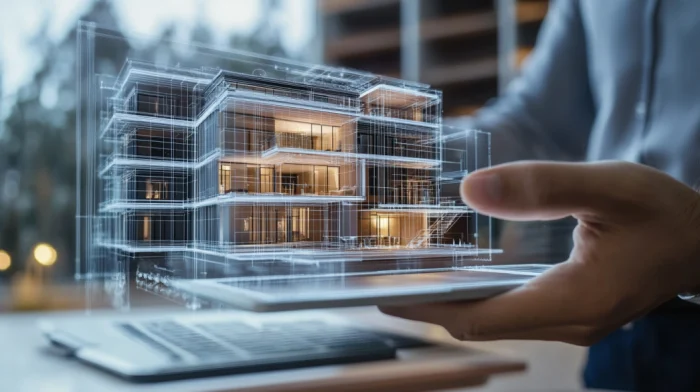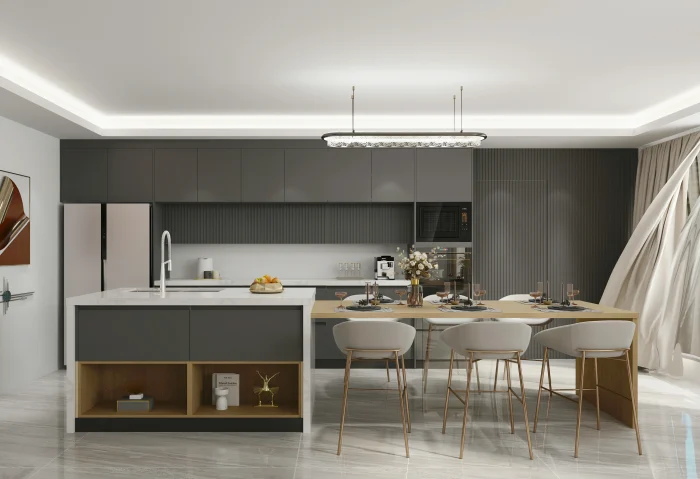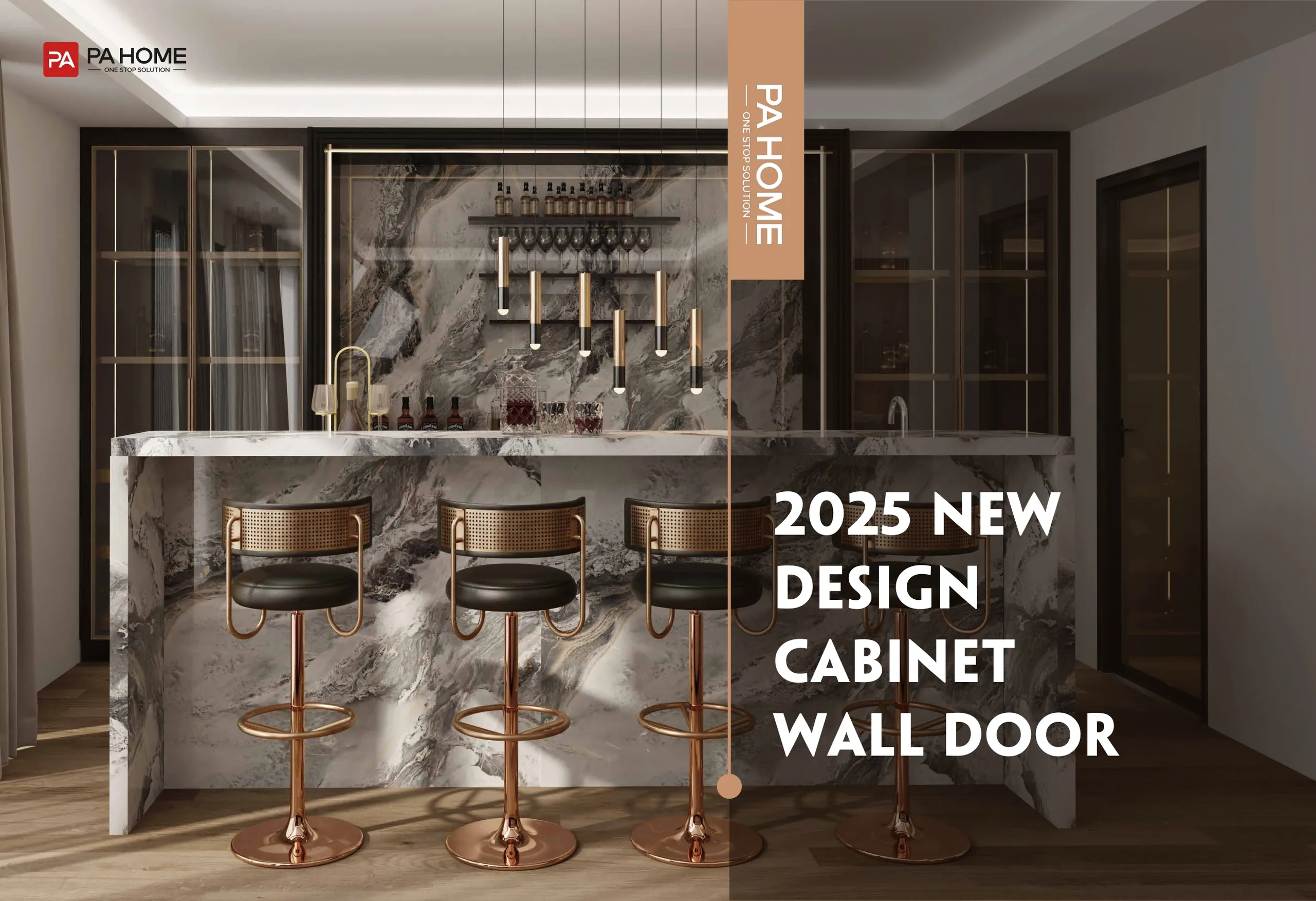Invisible doors have gained significant popularity in modern interior design, offering a sleek and stylish way to blend functionality with aesthetics. As the name suggests, these doors practically disappear into the wall, creating a seamless and uninterrupted flow in the space. Whether you’re looking to enhance the privacy of a room or simply prefer a minimalistic, clean look, invisible doors are an ideal choice for contemporary homes and offices. This article will explore the design trends, benefits, and practical applications of invisible doors, along with essential tips to help you choose the best design for your space.
Invisible Doors: The Latest Design Trends
Invisible doors have evolved from a simple concept into a trendy design feature that’s changing how we think about space. Here’s a quick rundown of the latest trends in invisible door designs:
Frameless Designs
Gone are the days of bulky door frames. Frameless invisible doors make the doorway virtually undetectable, as they blend perfectly with the wall, creating a smooth and uninterrupted surface. Whether it’s for modern homes or office spaces, frameless designs ensure that the door disappears from view, maintaining a sleek and streamlined aesthetic.
Hidden Handles
One of the key features of invisible doors is the lack of visible handles. Hidden handles are becoming more common, providing an additional layer of sophistication and seamlessness. These handles are cleverly integrated into the door, maintaining its clean lines and enhancing the door’s invisible effect.
Customizable Materials and Finishes
Invisible doors can be customized with various materials, including wood, metal, glass, and even fabric finishes. Whether you prefer the natural look of wood or a more industrial vibe with metal, invisible doors can match your design preferences. These materials are carefully chosen to complement the existing wall, so the door effortlessly merges into its surroundings.
10 Creative Invisible Door Design Ideas
Invisible doors can be used creatively to enhance both the aesthetics and functionality of a space. Here are ten unique design ideas to inspire you:Invisible doors can be used creatively to enhance both the aesthetics and functionality of a space. Here are ten unique design ideas to inspire you:
Mirror Finish Invisible Doors
Why not turn your door into a reflective surface? Mirror finish invisible doors add depth to your space while maintaining the door’s hidden quality. Not only does it serve as a door, but it also reflects light, making the room appear larger and more open.
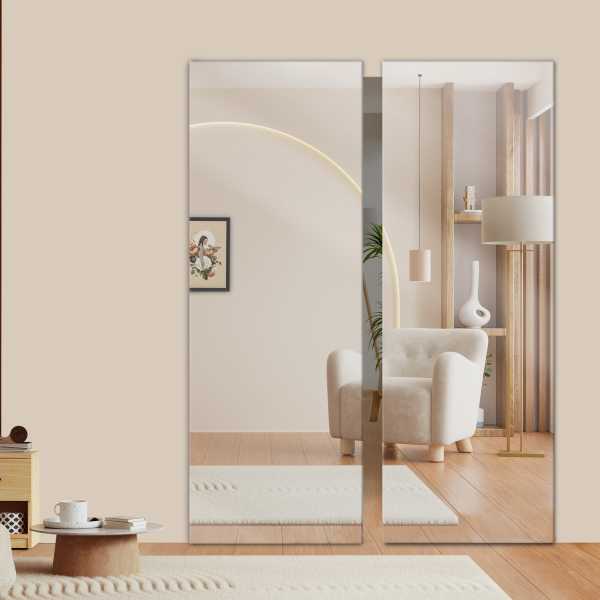
Bookcase Hidden Door
For a truly secretive design, consider a bookcase that doubles as an invisible door. This design offers both function and fun, with the door cleverly disguised as part of your bookshelf. It’s perfect for creating hidden rooms or closets.
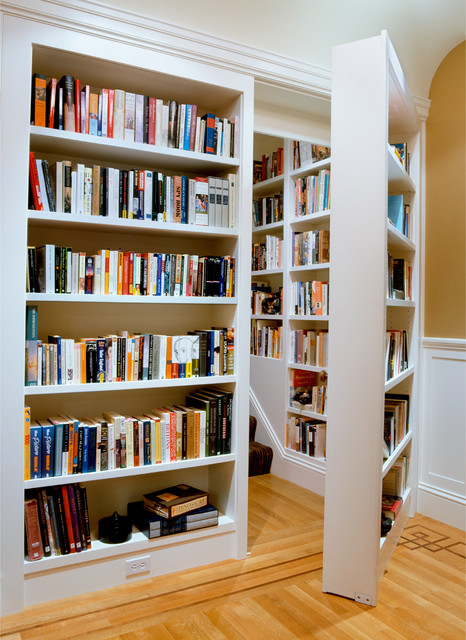
Wallpaper Concealed Doors
Using the same wallpaper on the door as the rest of the wall can make it virtually invisible. This is a great option for creating a uniform look, especially in spaces where you don’t want any features to stand out.
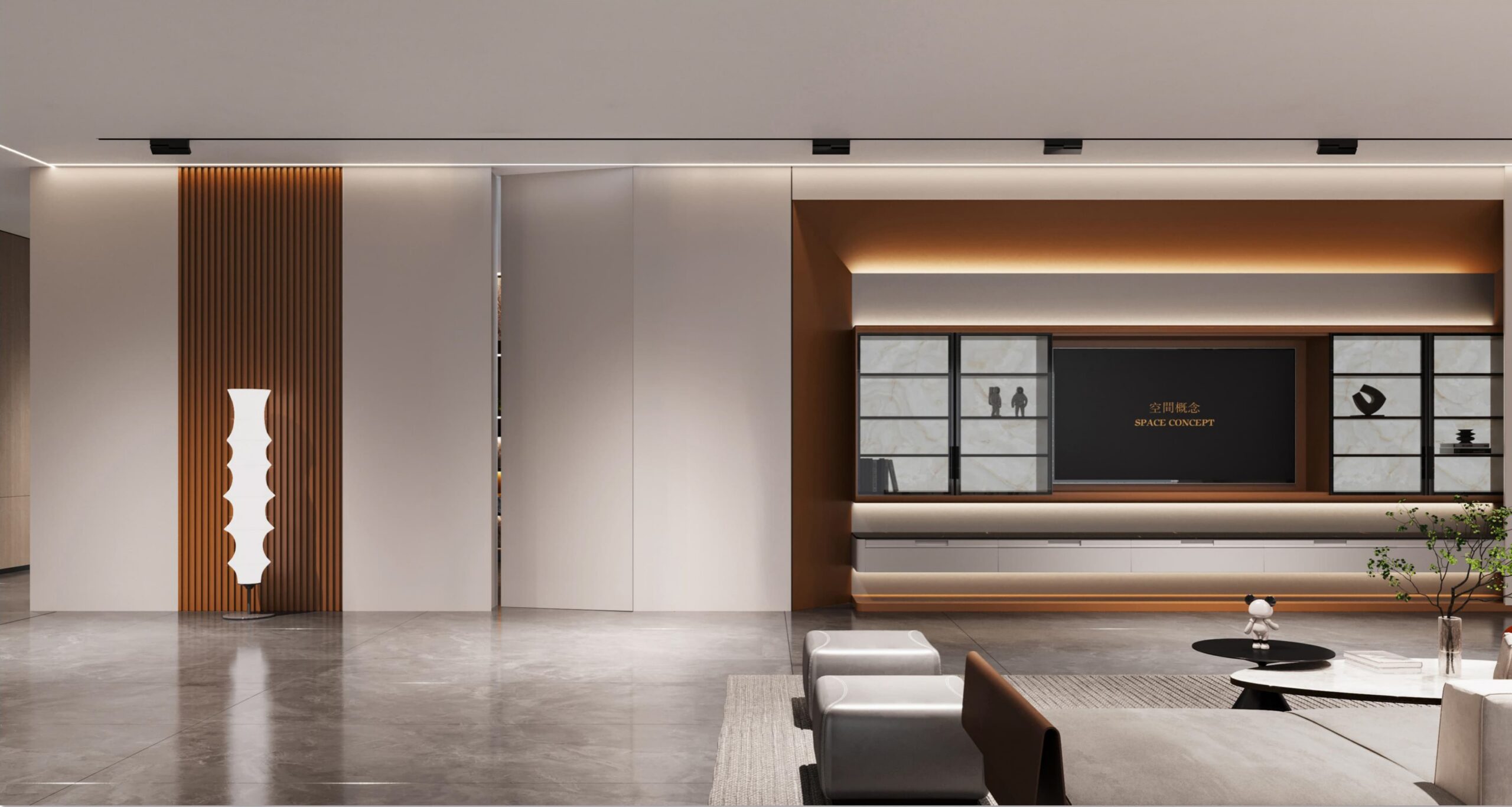
Dark Colored Painted Invisible Doors
Dark hues can create an illusion of depth. By painting your invisible door in a deep, rich color, it’ll blend into the surroundings, giving the space a sophisticated, modern look. This approach works particularly well with darker-toned walls.
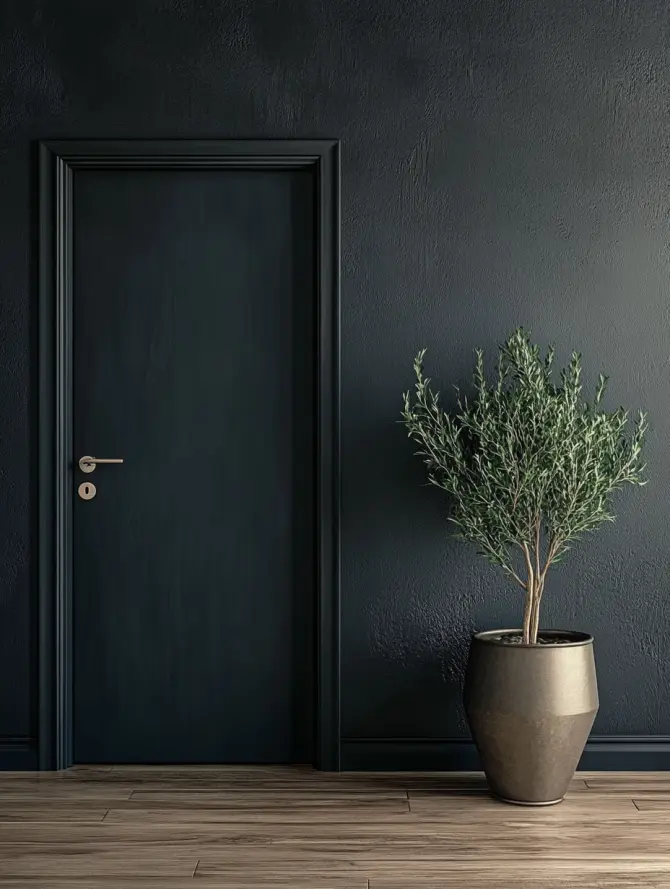
Artistic Panel Doors
Incorporating art into your invisible door design creates a door that’s not only functional but also an aesthetic piece of your room’s décor. You can customize the door with a painting or abstract design, making it both artistic and practical.
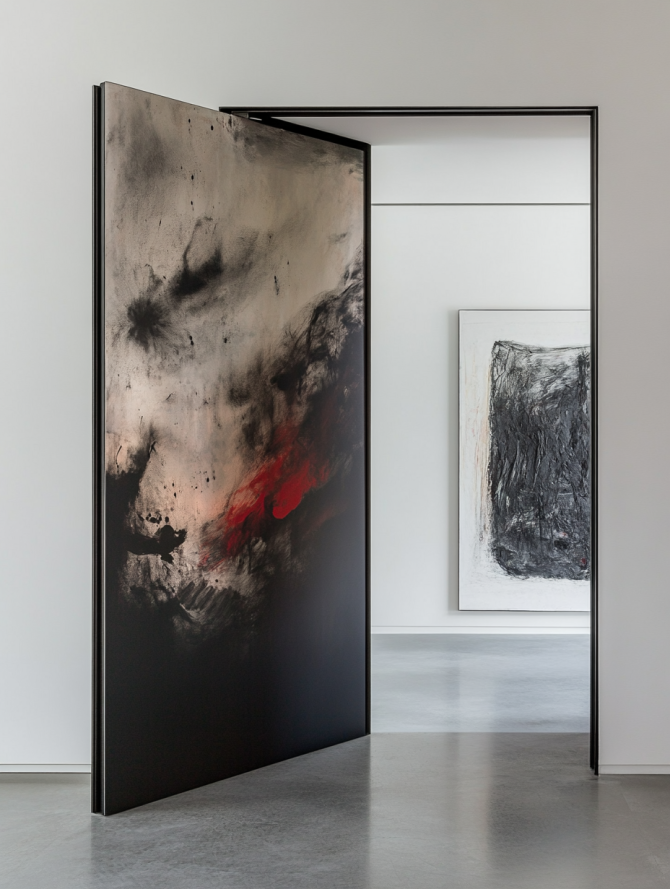
Kitchen Pantry Doors
Invisible doors work wonders in the kitchen, especially for pantries or hidden storage. They provide a sleek and modern way to keep the kitchen tidy and organized without compromising on design. A pantry hidden behind an invisible door maintains the kitchen’s clean aesthetic.
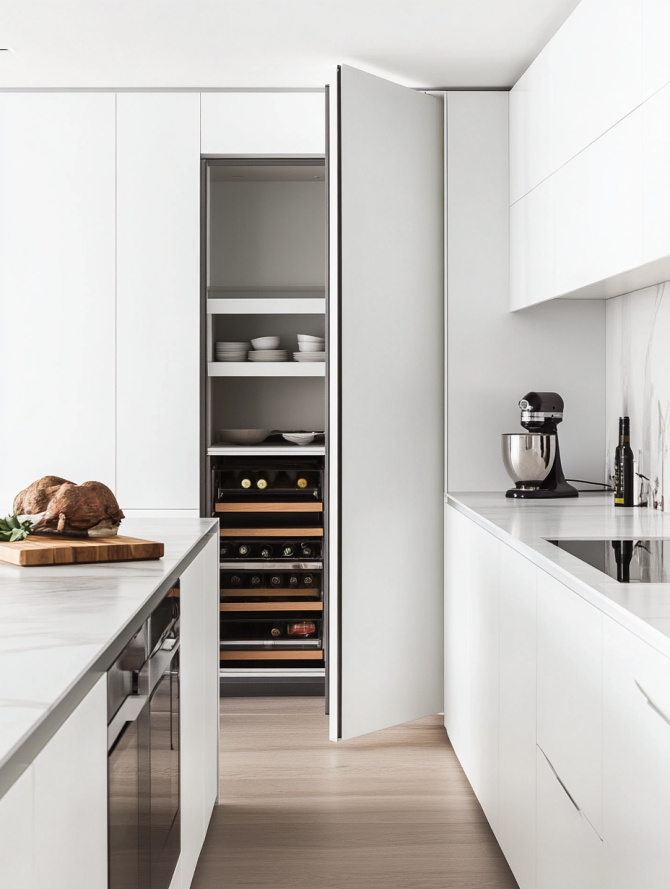
Staircase Under-Utilized Space
Use the space under your stairs for additional storage by designing an invisible door that blends in with the wall. This clever use of space ensures that even the most hidden areas remain functional yet unobtrusive.
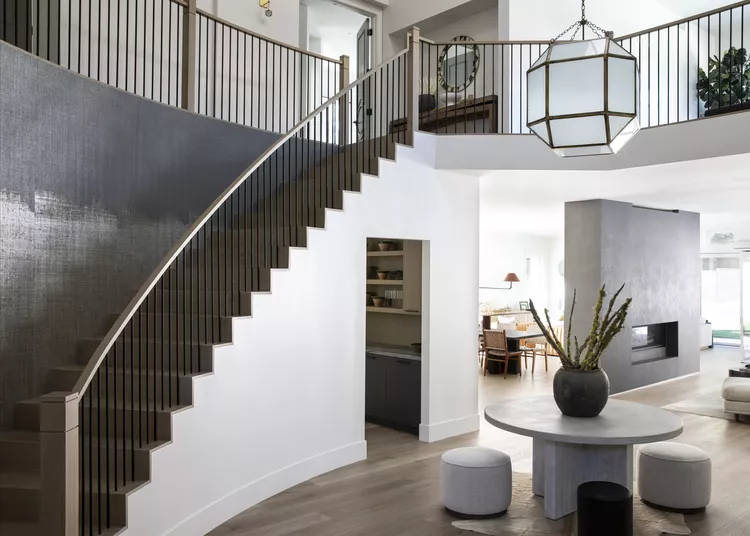
Mounted Invisible Doors
Mounted invisible doors lead to lofts or hidden storage areas. This design maximizes space while ensuring the door blends into the ceiling, creating a minimalist, futuristic feel.
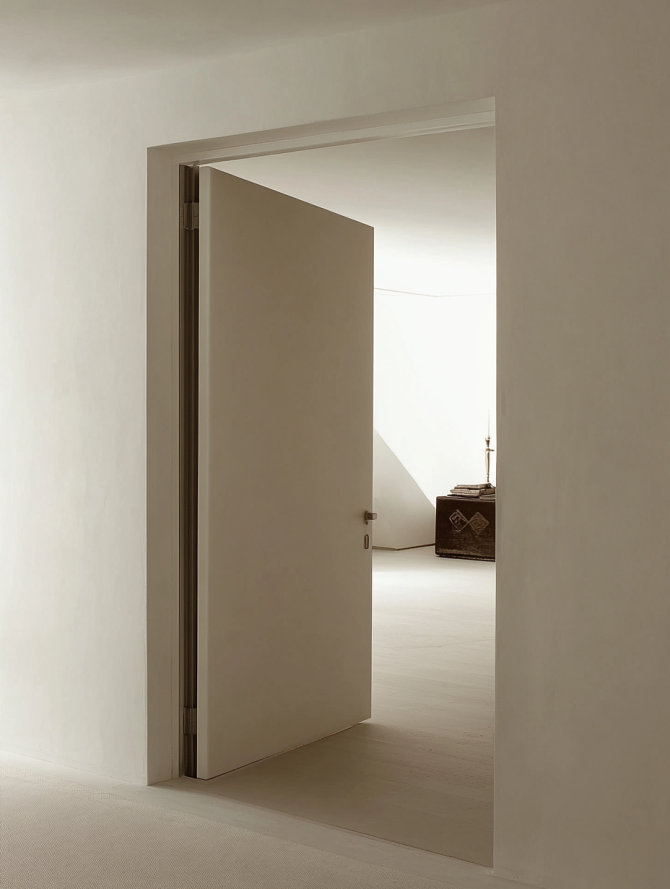
Secret Storage Door
Design a hidden door that leads to a secret storage space, perfectly blending with the surrounding wall. The door is camouflaged to look like part of the room’s design, creating an element of surprise as it opens into a neatly organized storage area, hidden in plain sight.
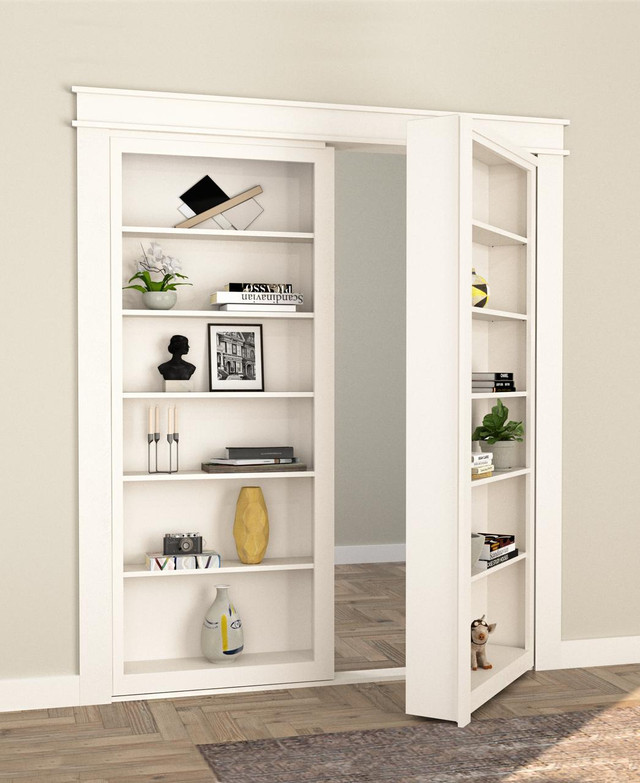
Custom Furniture-Integrated Doors
Invisible doors can be seamlessly integrated into custom furniture, such as wardrobes or cabinets. This allows the door to blend with the furniture, making it part of the overall design without drawing attention.
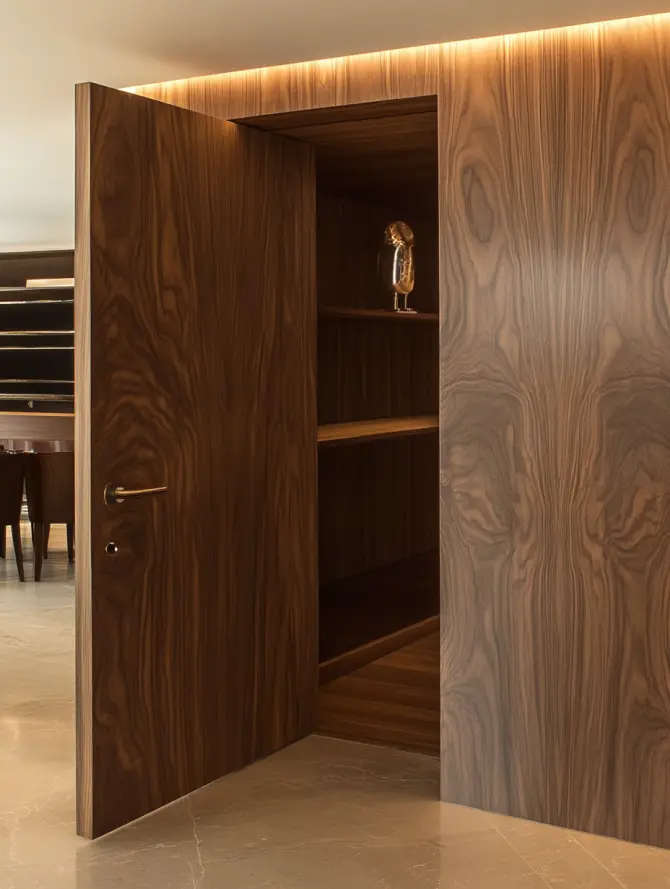
*Some images are sourced from other websites
Functional Benefits of Invisible Doors
Beyond their visual appeal, invisible doors provide numerous functional advantages:
Enhanced Privacy
Invisible doors can effectively create private spaces without sacrificing design. They are perfect for home offices, bedrooms, or bathrooms where privacy is important, yet you don’t want to clutter the room with bulky door frames.
Improved Space Flow
Invisible doors contribute to a seamless space, making rooms feel more open and expansive. When designed correctly, they allow for better natural flow between different areas, making the entire space feel cohesive and unified.
Aesthetic Appeal
Invisible doors offer a minimalist aesthetic that is becoming increasingly popular in contemporary design. By removing the visual interruption of traditional doors, they enhance the overall look of your space, creating a clean, sleek appearance.
Increased Functionality
Invisible doors are versatile. They can be used to separate rooms, conceal storage, or provide access to hidden spaces while maintaining a functional role. Their unique design gives homeowners the flexibility to get creative with their spaces.
How to Choose the Right Invisible Door for Your Space?
When selecting the right invisible door for your space, consider the following factors:
Material Selection
The material of your invisible door should align with the overall aesthetic of the room. Wood, metal, and glass are all popular options. Choose a material that complements the surrounding walls and décor.
Design Considerations
Think about the door’s function. If it’s meant to create a hidden passage or closet, ensure it blends seamlessly with the wall. If you want it to be a statement piece, choose a custom design that complements your room’s style.
Budget
Invisible doors can vary in price, depending on the materials, features, and customization options. Determine your budget beforehand and choose a door that fits your needs without breaking the bank.
Conclusion
Invisible doors are not just functional—they are a stylish and innovative way to redefine your interior design. They create a seamless flow, enhance privacy, and allow for endless design possibilities. Whether you’re creating a modern home or a sophisticated office space, invisible doors provide the perfect balance of form and function. With the right design, these doors can transform any space into a sleek, minimalist haven that impresses both guests and residents alike.
👉 Looking for a invisible door manufacturer? Contact PA Home today for free design consultation and a personalized quote.
FAQs
An invisible door is a door that blends seamlessly into the surrounding wall, making it nearly unnoticeable. These doors often feature hidden mechanisms and are designed to match the texture or material of the wall, providing a minimalist, clutter-free look. They can be used for privacy, hidden storage, or to create a sleek, modern space.
Invisible doors offer numerous benefits, including enhanced privacy, a cleaner aesthetic, and more flexible space usage. They are perfect for creating hidden rooms, storage areas, or simply for achieving a more minimalist, modern design. They help maintain a seamless flow between spaces without disrupting the room’s visual appeal.
The cost of an invisible door varies depending on the materials, size, and complexity of the design. Basic models can start at a few hundred dollars, while more customized, high-end versions with special finishes or automated systems can cost several thousand dollars. It’s important to factor in installation and any additional custom features when budgeting.



